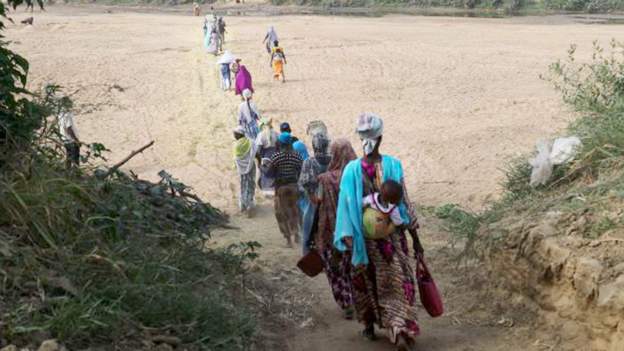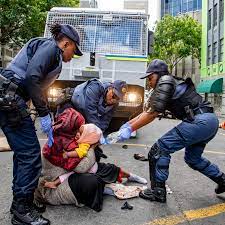Could Kenya Emerge as a Champion of Refugee Rights?
Hadija, a Somali refugee in her mid-40s, has lived in
Kenya’s Dadaab refugee camp for over two decades. Married to a Kenyan citizen
for 18 years, she and her husband have four children, all of whom are
registered as Kenyan citizens. Despite this, Hadija is confined to the camp,
unable to access the same freedoms as her children due to her refugee status.
Hadija's situation is not unique. Kenya hosts over 700,000
refugees from crises in the Great Lakes, Somalia, Ethiopia, and neighboring
countries. Most of these refugees reside in camps like Kakuma, Kalobeyei, and
Dadaab, living in limbo with limited integration opportunities due to Kenya’s
stringent encampment policies and contradictory laws.
Under Article 15(1), Kenya's constitution stipulates that
individuals married to Kenyan citizens for seven or more years can apply for
citizenship. The newly adopted Refugee Act also mandates that refugees be
afforded the same rights as other foreign nationals. However, Kenya’s
Citizenship and Immigration Act does not recognize refugee IDs as proof of
lawful residence, thereby preventing refugees from applying for citizenship on
the same terms as other foreigners.
Hadija’s alternative would be to apply for a ‘Class M’ work
permit, necessitating an employer's sponsorship and a detailed letter to
Immigration Services—a near-impossible feat while confined to a camp. Even
though her children have rights as Kenyan citizens, many children born to mixed
Kenyan-refugee unions cannot access these rights, despite constitutional
guarantees.
Despite these challenges, Kenya has shown signs of
progressive policy shifts. In collaboration with the UNHCR and development
partners, Kenya has introduced the ‘Shirika Plan’. This ambitious multi-year,
multi-million dollar initiative aims to transform refugee camps into
self-reliant open settlements where refugees can live and work alongside local
communities. The plan seeks to expand protection and integration opportunities
for refugees like Hadija.
The 2021 Refugee Act also extends various rights to
refugees, including employment opportunities and recognizing refugee ID cards
on par with other foreign nationals' "Alien Cards." Refugees from the
East African Community (EAC) can opt to relinquish their refugee status and
become EAC citizens. However, these rights are limited by procedural hurdles,
such as the requirement for certification of qualifications by the Kenyan National
Qualifications Authority, which is costly and logistically challenging for camp
residents.
Furthermore, the Act restricts refugees' freedom of movement
to designated areas, primarily in economically deprived regions like Garissa
and Turkana counties. Unauthorized movement can result in hefty fines or
imprisonment, limiting refugees' ability to integrate and contribute
economically.
Civil society organizations are actively challenging these
legal inconsistencies. Haki na Sheria, an NGO advocating for marginalized
communities, has filed petitions in the Garissa High Court to address
citizenship rights for children of mixed unions and refugee spouses.
Kituo cha Sheria, Kenya’s oldest legal empowerment
organization, has also petitioned the Nairobi High Court to declare parts of
the Citizenship and Immigration Act unconstitutional, advocating for refugees’
right to apply for permanent residency or citizenship.
These legal efforts, if successful, could significantly
improve refugees' lives, allowing them greater mobility, access to services,
and the opportunity to contribute to Kenya's economy.
Kenya’s government has shown generosity in granting
citizenship to long-standing minority groups, such as the Pemba community in
2023, and the Makonde, Shona, and Warwanda communities in previous years. This
demonstrates a precedent of addressing statelessness and integrating
marginalized groups.
As global attitudes toward refugees harden, Kenya has the
potential to set an example by extending similar generosity to its refugee
population. By doing so, Kenya could not only improve the lives of thousands
but also emerge as a leader in refugee rights and integration.








